-
The Orphan Trains: Placing Out in America
Marilyn Irvin Holt
Paperback (Bison Books, Feb. 1, 1994)"From 1850 to 1930 America witnessed a unique emigration and resettlement of at least 200,000 children and several thousand adults, primarily from the East Coast to the West. This 'placing out,' an attempt to find homes for the urban poor, was best known by the 'orphan trains' that carried the children. Holt carefully analyzes the system, initially instituted by the New York Children's Aid Society in 1853, tracking its imitators as well as the reasons for its creation and demise. She captures the children's perspective with the judicious use of oral histories, institutional records, and newspaper accounts. This well-written volume sheds new light on the multifaceted experience of children's immigration, changing concepts of welfare, and Western expansion. It is good, scholarly social history."-Library Journal Marilyn Irvin Holt, former director of publications at the Kansas State Historical Society; is a freelance editor, writer, and researcher and teaches historical editing at the University of Kansas.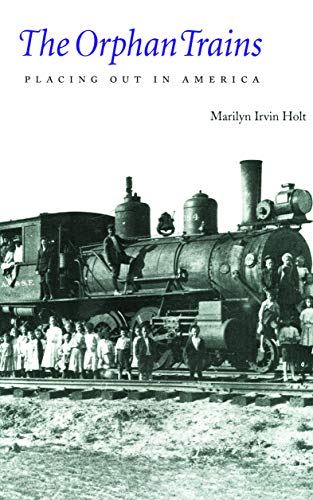
-
Mary Emma & Company
Ralph Moody
Paperback (Bison Books, Feb. 1, 1994)The protagonist, Mary Emma Moody, widowed mother of six, has taken her family east in 1912 to begin a new life. Her son, Ralph, then thirteen, recalls how the Moodys survive that first bleak winter in a Massachusetts town. Money and prospects are lacking, but not so faith and resourcefulness. "Mother" in Little Britches and Man of the Family, Mary Emma emerges fully as a character in this book, and Ralph, no longer called "Little Britches," comes into his own. The family’s run-ins with authority and with broken furnaces in winter are evocative of a full and warm family life. Mary Emma & Company continues the Moody saga that started in Colorado with Little Britches and runs through Man of the Family and The Home Ranch. All these titles have been reprinted as Bison Books, as has The Fields of Home, in which Ralph leaves the Massachusetts town for his grandfather's farm in Maine.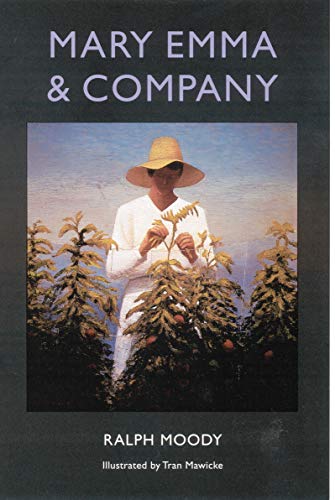
-
Old Home Town
Rose Wilder Lane
Paperback (Bison Books, Nov. 1, 1985)In Old Home Town, Rose Wilder Lane has recreated small-town society of pre-World War I America with a precise feeling for decorum, dress, and kitchen dialogue. Like Sherwood Anderson in Winesburg, Ohio, she describes a community through the stories of certain memorable citizens. The overlay of nostalgia cannot hide some sharp observations about marriage and women's rights.
-
The Horsecatcher
Mari Sandoz
Paperback (University of Nebraska Press, Sept. 1, 1986)Praised for swift action and beauty of language, The Horsecatcher is Mari Sandoz's first novel about the Indians she knew so well. Without ever leaving the world of a Cheyenne tribe in the 1830s, she creates a youthful protagonist many readers will recognize in themselves. Young Elk is expected to be a warrior, but killing even an enemy sickens him. He would rather catch and tame the mustangs that run in herds. Sandoz makes it clear that his determination to be a horsecatcher will require a moral and physical courage equal to that of any warrior. And if he must earn the right to live as he wishes, he must also draw closer to family and community. Y
Y
-
Broken Hand: The Life of Thomas Fitzpatrick, Mountain Man, Guide and Indian Agent
LeRoy R. Hafen
Paperback (University of Nebraska Press, Feb. 1, 1981)Known by the Indians as "Broken Hand," Thomas Fitzpatrick was a trapper and a trailblazer who became the head of the Rocky Mountain Fur Company. With Jedediah Smith he led the trapper band that discovered South Pass; he then shepherded the first two emigrant wagon trains to Oregon, was official guide to Fremont on his longest expedition, and guided Colonel Phil Kearny and his Dragoons along the westward trails to impress the Indians with howitzers and swords. Fitzpatrick negotiated the Fort Laramie treaty of 1851 at the largest council of Plains Indians ever assembled. Among the most colorful of mountain men, Fitzpatrick was also party to many of the most important events in the opening of the West.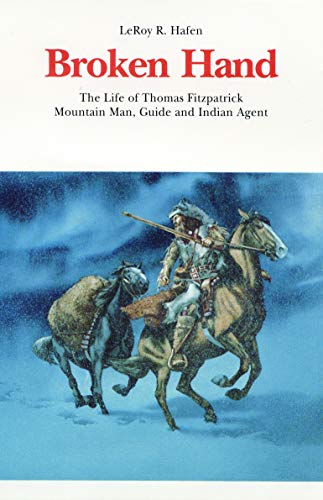
-
A White Bird Flying
Bess Streeter Aldrich
Paperback (University of Nebraska Press, Jan. 1, 1988)Abbie Deal, the matriarch of a pioneer Nebraska family, has died at the beginning of A White Bird Flying, leaving her china and heavy furniture to others and to her granddaughter Laura the secret of her dream of finer things. Grandma Deal's literary aspirations had been thwarted by the hard circumstances of her life, but Laura vows that nothing, no one, will deter her from a successful writing career. Childhood passes, and the more she repeats her vow the more life intervenes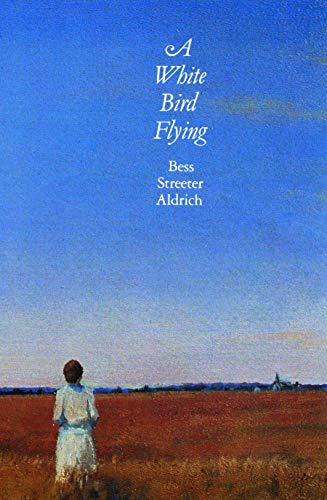
-
Showdown at Little Big Horn
Dee Brown
Paperback (Bison Books, March 1, 2004)On Sunday afternoon, June 25, 1876, Gen. George Custer and 264 members of the U.S. Seventh Cavalry engaged more than 3,000 warriors of the Lakota Sioux, Arapaho, and Cheyenne nations and were killed in the ensuing battle. Acclaimed historian Dee Brown traces the events of that day and of the weeks before, through the eyes and ears of seventeen participants from both sides, including Natives, scouts, soldiers, and civilians.Why did Custer divide his forces? Why did he not take his regiment’s Gatling guns? Why did he expect Sitting Bull to surrender without a fight? How did Sitting Bull’s vision at the sun dance on the Rosebud foretell the occasion and the outcome of the battle? How did war chiefs Crazy Horse and Gall take advantage of Custer’s tactical errors? And why did they preserve Custer’s body from mutilation?Showdown at Little Big Horn answers these and other questions, telling the story of the fight from many points of view, based on reports, diaries, letters, and testimony of the participants themselves. Together the accounts provide a gripping narrative of a punitive expedition gone badly awry and an assemblage of Native peoples who forestalled for a while the army’s domination of the northern plains.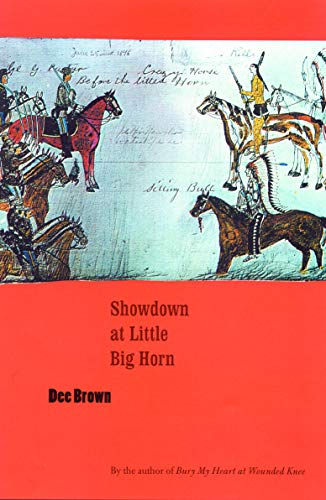
-
Pony Express
Fred Reinfeld
Paperback (Bison Books, Sept. 1, 1973)This authentic account of the establishment of the first rapid-communications system between East and West is packed with adventure and real-life heroes—Bob Haslam, who rode unharmed through an ambush of thirty Paiute Indians; Jack Keetley, Warren Upson, and the most famous rider of all, Buffalo Bill Cody. It is a rousing chronicle of the Old West, when danger and excitement marked each galloping trip across the two thousand miles of mountains, plains, and deserts that separated St. Joseph and San Francisco. S
S
-
These Were the Sioux
Mari Sandoz
Paperback (Bison Books, Sept. 1, 1985)"The Sioux Indians came into my life before I had any preconceived notions about them," writes Mari Sandoz about the visitors to her family homestead in the Sandhills of Nebraska when she was a child. These Were the Sioux, written in her last decade, takes the reader far inside a world of rituals surrounding puberty, courtship, and marriage, as well as the hunt and the battle.
-
Old Jules: 50th Anniversary Edition
Mari Sandoz, Helen Stauffer Winter
Paperback (Bison Books, Aug. 1, 1985)First published in 1935, Old Jules is unquestionably Mari Sandoz's masterpiece. This portrait of her pioneer father grew out of 'the silent hours of listening behind the stove or the wood box, when it was assumed, of course, that I was asleep in bed. So it was that I heard the accounts of the hunts, . . .of the fights with the cattlemen and the sheep-men, of the tragic scarcity of women, when a man had to 'marry anything that got off the train,' of the droughts, the storms, the wind and isolation. But the most impressive stories were those told me by Old Jules himself.'"
-
The Conquest: The Story of a Negro Pioneer
Oscar Micheaux, Learthen Dorsey
Paperback (Bison Books, May 1, 1994)Before Oscar Micheaux became celebrated as one of the earliest black filmmakers, he wrote a series of remarkable novels, the first one published in 1913 as The Conquest. Dedicated to Booker T. Washington, the black educator whose advocacy of assimilation was opposed by many of his race who were agitating for civil rights, The Conquest "is a true story of a negro who was discontented and [of] the circumstances that were the outcome of that discontent." The novel portrays the aspirations and struggles of a black homesteader named Oscar Devereaux. Born on a small farm near Cairo, Illinois, one of thirteen children, Devereaux leaves home to work in the Chicago stockyards and finally graduates to the job of porter in a Pullman railway car. He is personable, industrious, and frugal with a purpose. After saving $2,500, Devereaux goes to South Dakota and buys land. His object is not speculation for a quick profit but the cultivation of property he can call his own. He plows and sows and sweats, and by the age of twenty-five has reaped an estate worth $20,000. Success is sweet, self-respect sweeter. But if the calamities he is exposed to as a homesteader are severe, so are those brought on by marriage to the passive daughter of a dominating preacher.
-
History of Slavery
Susanne Everett
Hardcover (Harveys Books, March 15, 1994)None